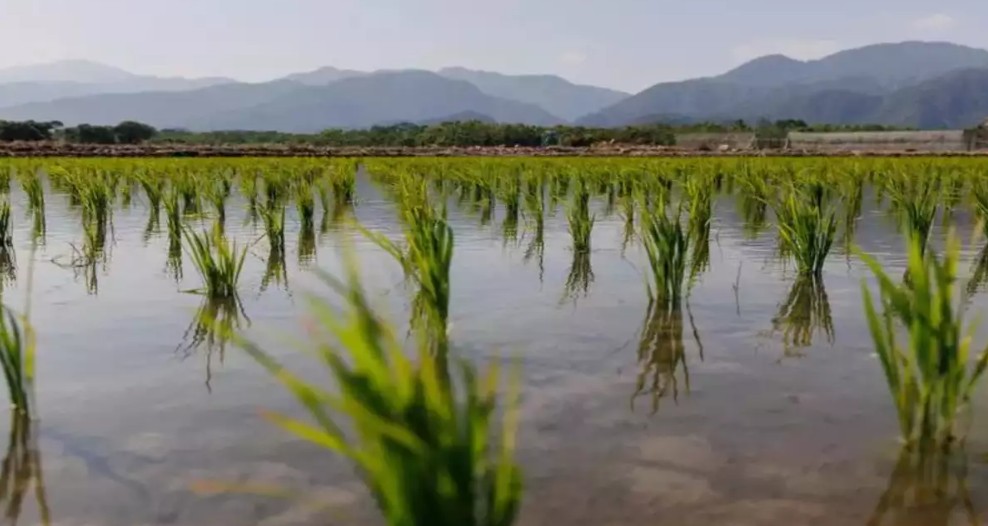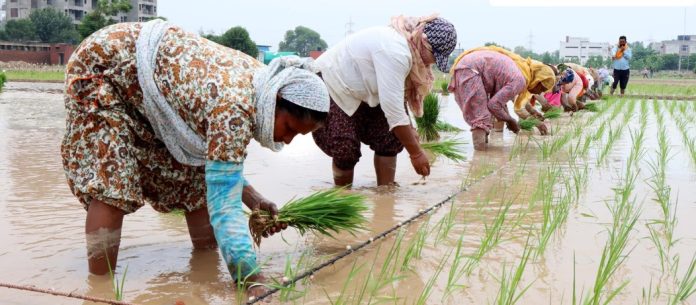In a significant move aimed at addressing environmental concerns and promoting sustainable agriculture, the Punjab government has officially banned the cultivation and sale of the Pusa-44 paddy variety and certain hybrid paddy seeds for the upcoming Kharif season. This decision, announced through a notification by the Punjab Department of Agriculture, aligns with recommendations from the Punjab Agricultural University (PAU) and seeks to mitigate the state’s escalating groundwater crisis and environmental degradation.
Pusa-44, a long-duration paddy variety, has been identified as a major contributor to groundwater depletion due to its high water requirements. The variety takes approximately 143 days to mature and necessitates an additional 50 days of field puddling, leading to excessive water consumption. Moreover, its cultivation results in substantial stubble production post-harvest, contributing to air pollution through stubble burning—a practice that has become a significant environmental concern in Punjab.
The ban also targets certain hybrid paddy varieties that have been associated with environmental and economic drawbacks. These hybrids often require higher inputs of water and chemicals, increasing the cost of cultivation and contributing to soil and water pollution. Additionally, some hybrid varieties have been reported to produce grains with high moisture content and breakage rates, leading to lower market prices and financial strain for farmers.
The government’s decision has elicited mixed reactions from various stakeholders. Environmentalists and agricultural experts have largely welcomed the move, emphasizing the urgent need to adopt water-efficient and environmentally friendly farming practices. They advocate for the cultivation of short-duration, low-water-consuming paddy varieties such as PR 126 and PR 131, which not only conserve water but also reduce the incidence of stubble burning.
However, some farmers and industry representatives have expressed concerns about the ban’s implications. Farmers argue that the decision was made without adequate consultation and that many have already procured Pusa-44 seeds from private dealers, particularly from neighboring states like Haryana. They also contend that hybrid varieties have been instrumental in achieving higher yields and better profitability, especially in regions with poor-quality underground water.

The rice milling industry has also weighed in on the issue. While some millers support the ban, citing the poor out-turn ratio of certain hybrid varieties, others caution that the prohibition could lead to a shortage of preferred paddy types and affect the overall rice production in the state.
To ensure compliance with the new policy, the Punjab Agriculture Department has issued strict instructions to seed dealers to halt the sale of banned paddy varieties. The department is also conducting awareness campaigns to educate farmers about the benefits of adopting certified, short-duration, and water-efficient paddy varieties. These initiatives aim to facilitate a smooth transition to sustainable agricultural practices and mitigate potential disruptions in the farming community.
The ban on Pusa-44 and certain hybrid paddy seeds represents a pivotal step in Punjab’s efforts to address its environmental challenges and promote sustainable agriculture. By encouraging the adoption of water-efficient and environmentally friendly paddy varieties, the government aims to conserve groundwater resources, reduce pollution, and ensure the long-term viability of the state’s agricultural sector.
As Punjab navigates the complexities of implementing this policy, ongoing dialogue and collaboration among farmers, industry stakeholders, and government authorities will be crucial. Balancing environmental sustainability with the economic interests of the farming community will require concerted efforts and adaptive strategies to ensure that the state’s agricultural practices align with both ecological imperatives and the livelihoods of its farmers.


